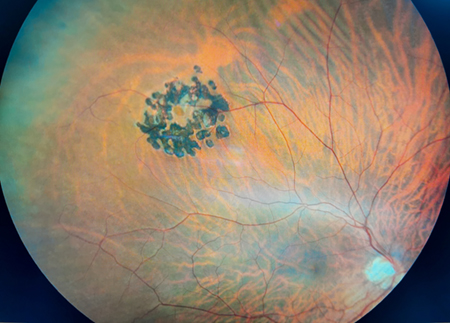Getting Your Eyes Fixed With Retinal Hole and Tear Laser Treatment
Retinal hole and tear laser treatment is a procedure that uses a laser to seal or close a hole or tear in the retina. This treatment can help to prevent further vision loss and improve vision in some cases.
Most people who undergo retinal hole or tear laser treatment will experience some improvement in their vision, but not everyone will see an improvement. Some people may also experience side effects such as glare, halos, or double vision after the treatment.
How Many Different Types of Lasers Fix Retinal Tears?

There are several different types of lasers that can be used for this treatment, and the type of laser that is used will depend on the size and location of the hole or tear. In some cases, the laser can be used to create a seal around the retinal hole or tear.
When it comes to treating retinal tears, there are a few different types of lasers that can be used. The most common type of laser used for this procedure is called Photocoagulation. Photocoagulation works by delivering short bursts of intense light energy to the retina, which seals off the tear or hole and prevents further damage from occurring. This type of laser is typically used to treat retinal tears caused by aging, trauma, or other factors affecting the health of the eyes.
Another type of laser used to fix retinal tears is called Transscleral Laser Photocoagulation (TLP). TLP works similarly to Photocoagulation but it uses a much more powerful laser and is used to treat retinal tears in more severe cases.
Finally, a newer type of laser treatment called Pattern Scanning Laser Photocoagulation (PSLP) has been developed to treat retinal tears caused by diabetes or other chronic conditions. PSLP works differently than other lasers by scanning an array of spots across the retina to seal off the tear.
What Are The Causes of Retinal Tears?
The most common cause of retinal holes and tears is age-related damage or trauma to the retina. Severe nearsightedness (myopia) can also increase the risk for developing these problems. Other causes may include inflammation, genetic factors, and complications from eye surgery.
Age is one of the major factors that contribute to retinal tears. As a person ages, their eyes can become more susceptible to trauma and injury. This includes changes in the vitreous humor (the gel-like substance inside the eyeball) which can lead to tractional forces on the retina and cause it to tear.
Additionally, people with high myopia (near-sightedness) or congenital eye defects are also at greater risk for retinal tears.
Other causes of retinal tears can include blunt trauma to the eye, such as a blow to the face, falls, and even blast injuries from explosions. In some cases, retinal tears can be caused by the pressure of a vitreous hemorrhage (bleeding in the eye).
Retinal tears can also be caused by certain medical procedures, such as intraocular surgery or cataract extraction. In these cases, the risk is usually minimal, but there are still potential complications that should be discussed with an ophthalmologist.
Finally, there are also certain systemic diseases that can put a person at increased risk for retinal tears. Diabetes is one of the most common causes, as it can lead to changes in the vitreous humor and weaken its structural integrity. Additionally, sickle cell anemia has also been linked to increased risk of retinal tears.
If You’re Displaying Symptoms or Need Retinal Hole and Tear Laser Treatment Contact Us!
If you have any symptoms of retinal holes or tears such as flashes in your vision, it is important to see an ophthalmologist as soon as possible for diagnosis and treatment. Retinal hole and tear laser treatment can help prevent further vision loss and improve your quality of life by preserving your current sight. Your ophthalmologist will be able to discuss the risks and benefits of this type of treatment with you. With regular follow-up care, retinal laser treatments can help keep your vision safe and clear.
